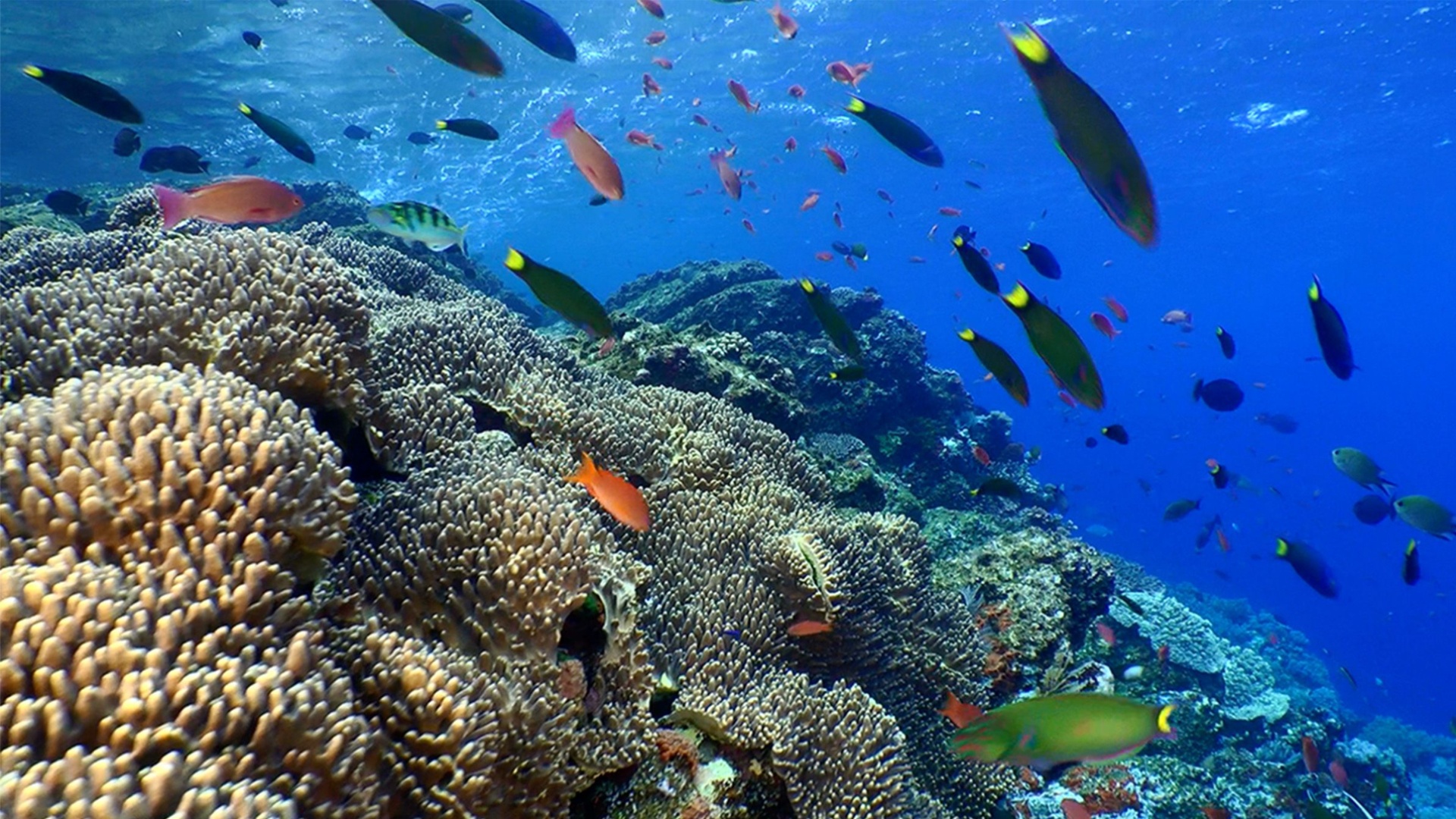If the ocean were a city, coral reefs would be that chaotic tourist spot you’d take pains to avoid at all costs. They would be New York’s Times Square on New Year’s Eve, Shibuya Scramble Crossing on any given night, or anywhere in Mumbai after 12 pm. Healthy coral reefs are teeming with life, activity, and noise—but with overfishing, pollution, and widespread reef bleaching, life in the oceans has become a lot less fun—and the reefs are going quiet. Now, marine ecologists are trying to liven them up again.
In a 2021 paper, marine biologist and professor Steve Simpson from the University of Bristol successfully demonstrated that simply playing a recording of a healthy coral reef within a degraded one could draw new sea life in. Kind of like how you’re more likely to walk into a party that sounds lit, as opposed to one with awkward small talk. Scientists can also use these recordings to compare reefs that are in various stages of restoration and track their progress. Luckily, hundreds of hours of such recordings already exist—what scientists don't have is the time to analyse it all. So last year, Simpson and his colleague, marine ecologist Mary Shodipo teamed up with Google Arts and Culture to develop Calling in Our Corals, an interactive project that invited users to listen to ocean recordings audio clips and click every time they hear signs of life, like a fish sound. The idea was to create a “bioacoustic” data library to track the biodiversity and health of reefs, while also empowering a community of “citizen scientists” to participate in the conservation effort (sort of like the fish doorbell project in the Netherlands.)
Now, this data is being used to train SurfPerch, an AI model developed by Google Research and DeepMind, which has the ability to process thousands of hours’ worth of recordings in no time. SurfPerch is a faster analyst than you or me, but the project could still use a human ear to pick out the occasional odd sound the model isn’t trained for—so Calling in Our Corals continues to actively welcome new members for its “listening collective”. Even a couple minutes of your time could help—and who knows, you might get to hear a humpback whale singing in the distance, or eavesdrop on two sea anemones on an awkward first date. Jokes apart, it is weirdly soothing to just sink into the sounds of the ocean, where no one is trying to advertise anything to you. And you get to save some corals in the process.




